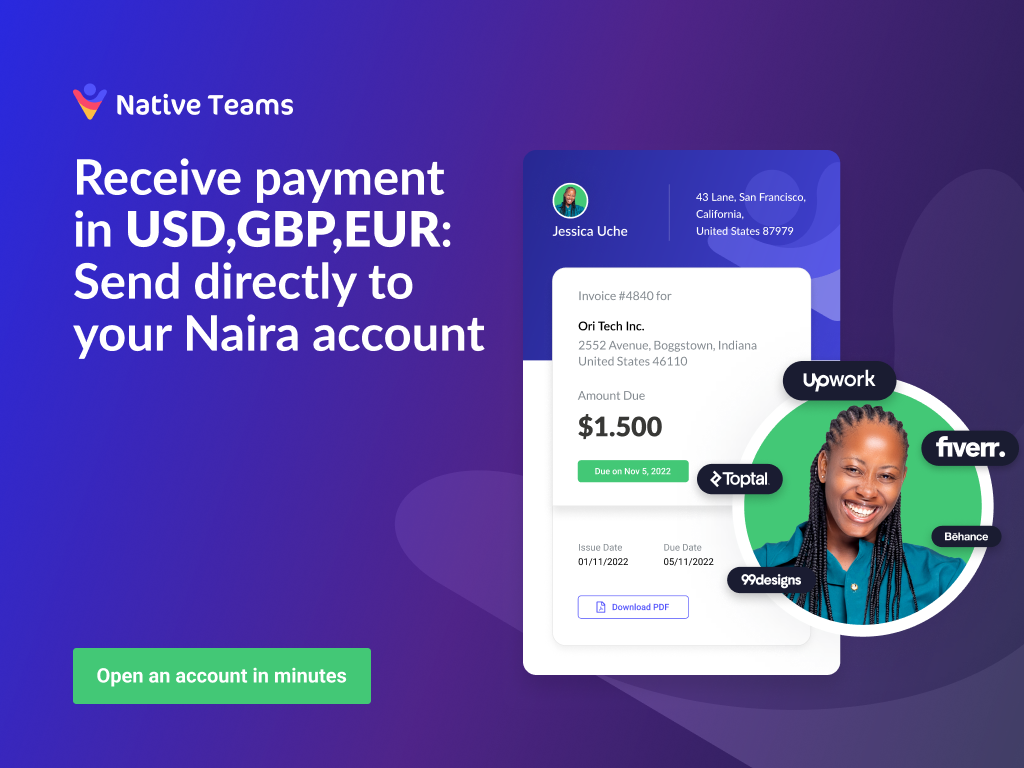Making sense of a truly busy week
A.k.a what was all that drama about?
If you missed last week’s newsletter, catch up here.
Today’s Notadeepdive is 733 words and is brought to you by Native Teams. Share today’s newsletter:
What a week!
It feels like we’ve been talking about Nigeria’s currency crisis throughout the month, mainly because all the players–the FG, CBN, and the courts–keep introducing new angles. The long and short of the currency crisis for this week is that Nigeria has held firm with phasing out old notes. But the old N200 notes will remain in circulation for another sixty days even though the new notes remain scarce. There are more twists and turns to this currency redesign than expected. As what looked like coordinated riots/protests broke out today, I wonder if mobile money bros are feeling as smug as last week.
This week has offered way more than the CBN and its money machinations. We saw a return of fundraises to the headlines–Curacel, Pade, etc. We saw a few big stories too, like the sale of Nigerian crypto startup, Fluidcoins to Blockfinex. The sale attracted a lot of attention because it coincided with a viral tweet accusing a founder of selling his company without telling investors. Per regular Twitter shenanigans, that tweet was followed by subliminal messages, threats to spill secrets, and whole lot of nothing coming out of it.
TechCabal’s reporting on the issue painted a picture of a sale that some investors say they were aware. An investor also spoke off the record to say they were not aware. In all, it ended up being a confusing he said she said, while many of people backtracked their comments. It’s difficult to walk away from this without feeling like most people who know what the truth is kept quiet to save face. I understand the sentiment, seeing as controversies take on a life of their own and can become consuming for all those involved. For now, it was a typical acquihire of a business that started out with big hopes of solving a problem and then ran into problems finding the cash to sustain that dream.
It reminds us that while angel investors and VCs often tell us about big wins, results like this mean that their investments go to zero. To be clear, this doesn’t mean that the founder didn’t put in a lot of work, it just means starting a business is difficult. Sometimes you need to be second or third-time lucky.
On to a story with fewer ambiguities. Techcrunch shared this week that Prince Boakye Boampong, the CEO of Dash, “a connected wallet for Africans,” has been temporarily suspended. Many of the allegations (emphasis mine because I don’t have the energy for legal trouble!), center around “financial impropriety.” The story only gets interesting from here.
Per the report, Dash raised $32.8 million (4x the initial amount it set out to raise) at a valuation of $200 million from a list of investors that includes Insight Capital and 4DX. Its fundraise was successful because it claimed to process a lot of transactions and showed incredible traction. Here’s a timeline:
October 2021: 200,000 users and $250 million in transaction volume.
March 2022: 1 million users and total processing volume (since launch) of over $1 billion. Those one million users were across Ghana, Kenya, and Nigeria.
TOGETHER WITH NATIVE TEAMS
Are you a freelancer or remote worker earning in USD, GBP & EURO?
Get paid through Native Teams and withdraw directly to your Naira account.
With Native Teams, you get;
- International payments in any currency
- Withdrawal at Parallel market rates to your local bank account.
- Virtual USD Card
- Physical USD Card
Start receiving money from your clients and employers with the free plan on Native
Teams. Invoice your employers, receive payments, and send to your local bank all for free with Native Teams.
I don’t know about you but the growth is incredible enough to trigger some skepticism. Nothing has been proven yet, but there’s $3bn in two years is a ton of money to process. Here’s an interesting line from the Techcrunch article that announced the $32.8 million seed round last year: “The pace at which Dash managed to quadruple the size of its initial investment in the space of five months is intriguing. That said, for some investors and onlookers, $32 million is an incredibly large seed that could cause more harm than good for a three-year-old company. But Boampong disagrees.”
The jury is still out on the whole thing and I’ll refrain from making comments, but it’s worth seeing how all of this plays out. It might not be the litmus test, but with 1 million customers, it feels like we should have to look around the room and find a few of their users. Moving on!
I’m tempted to cram in some detail about Jumia but that’s enough of a roundup for this week.
What I’ve been reading:
This fantastic article on culture writing
A New York Times columnist used Bing’s chatbot for a week and wrote about it
My newsletter for Founders Factory Africa
Thanks for all the good wishes and comments last week! See you on Sunday






With the recent news we've been seeing on padded growth numbers and financial reports. It won't be a bad idea to start up a legal firm that ACTUALLY does due diligence..I also think the firms who handle these audit checks should be brought to the limelight because omooo